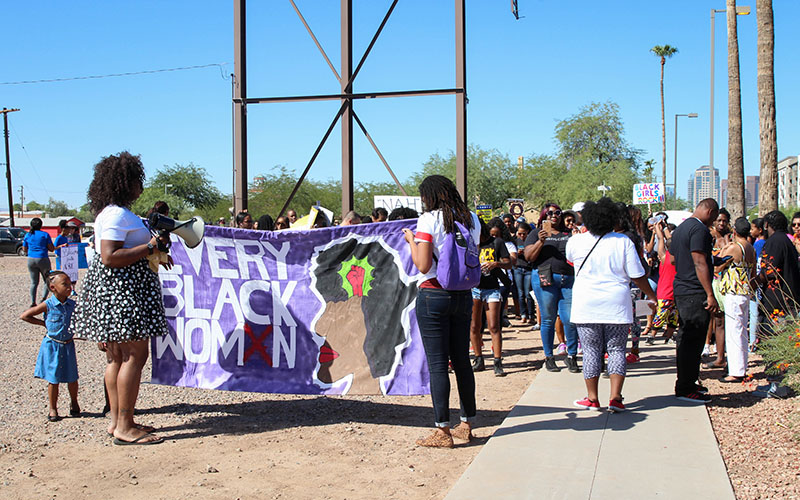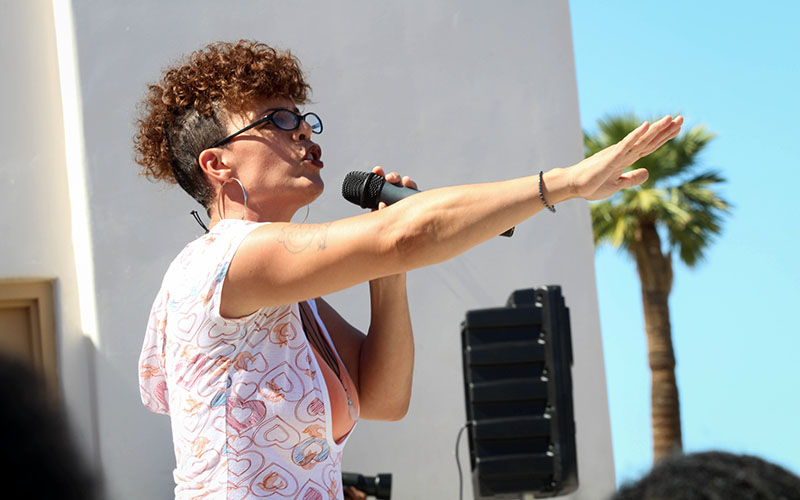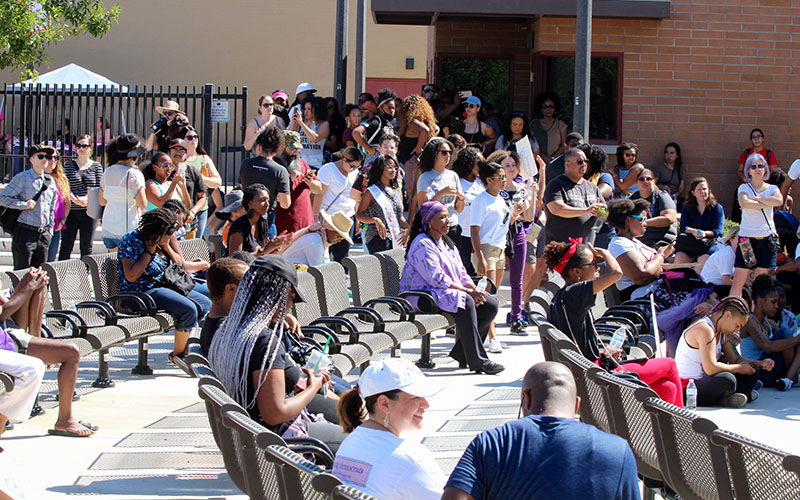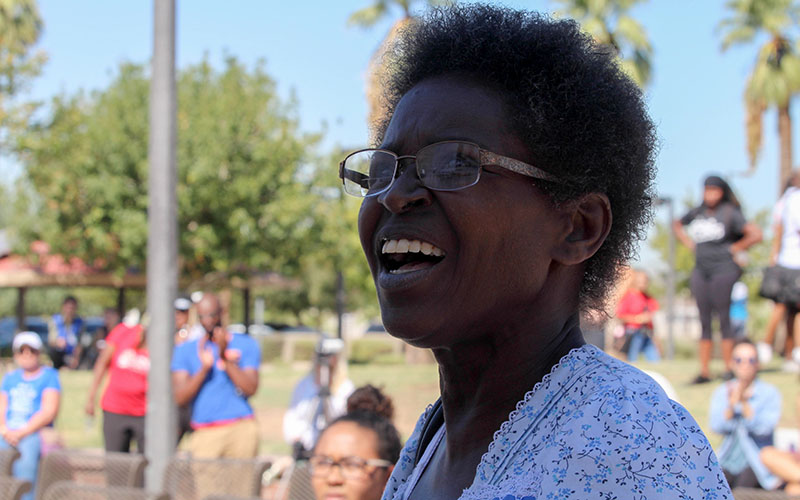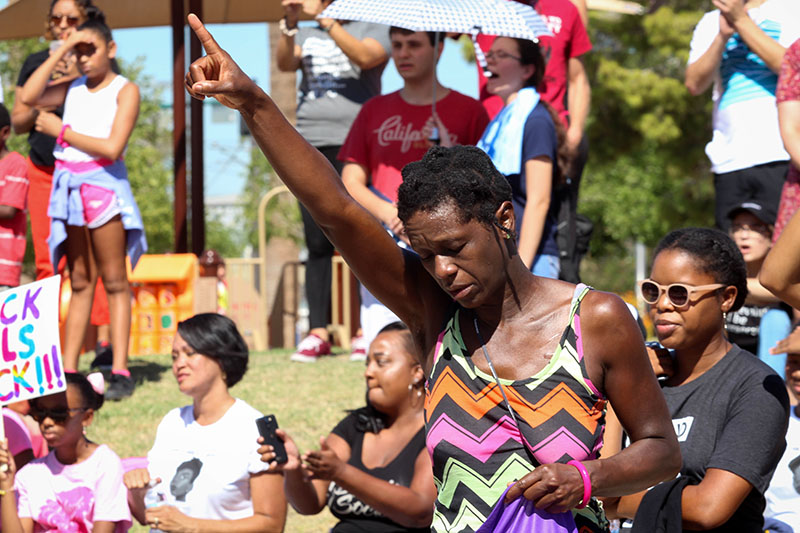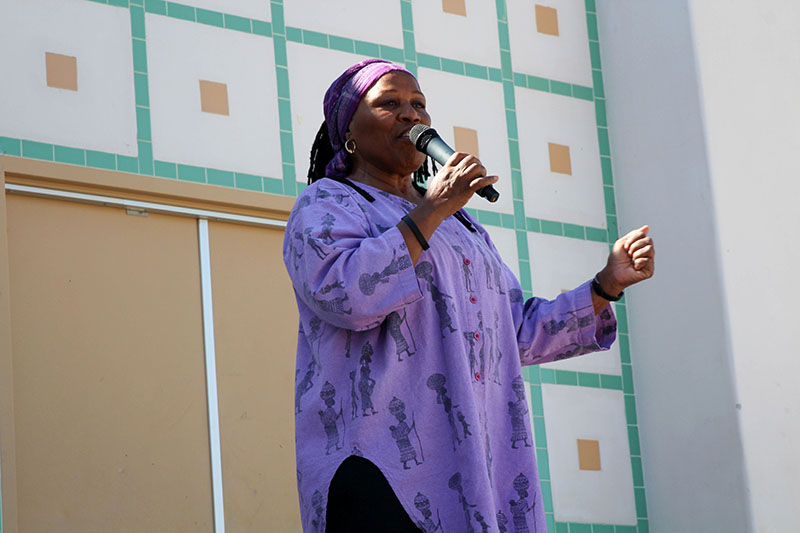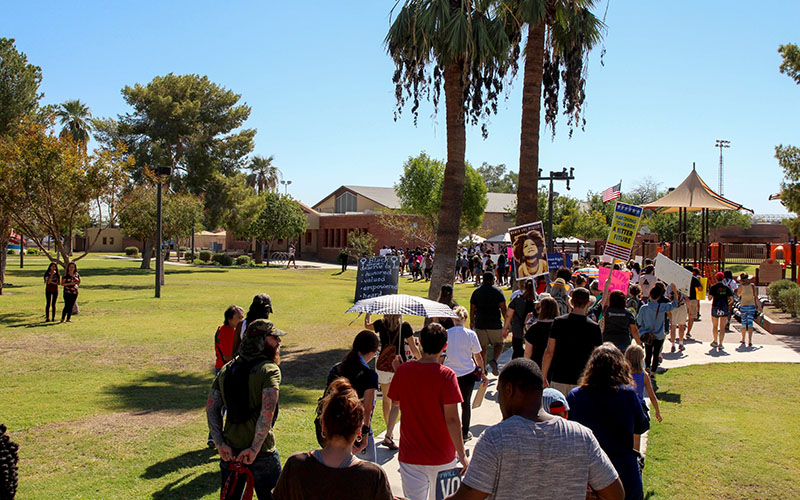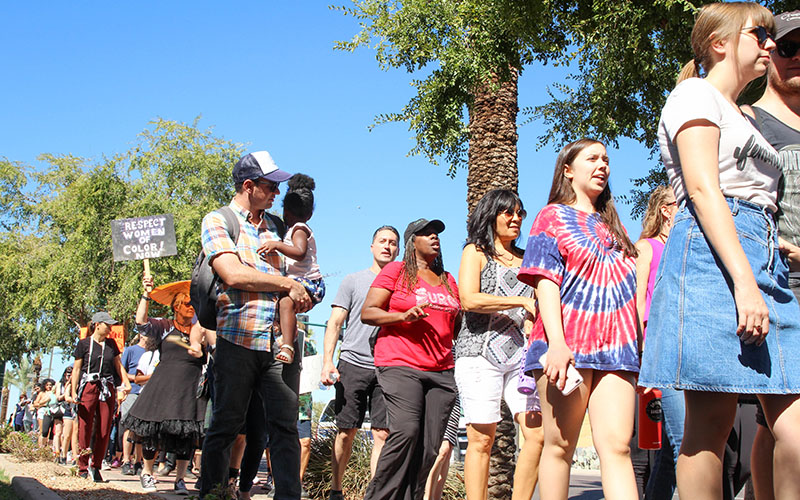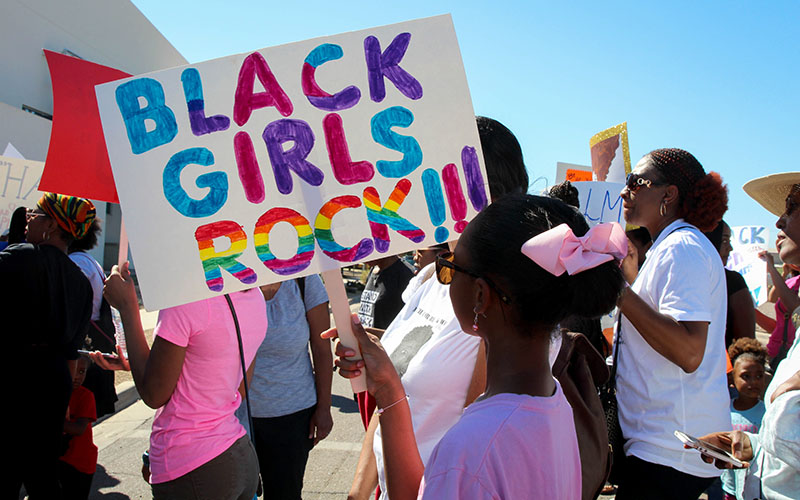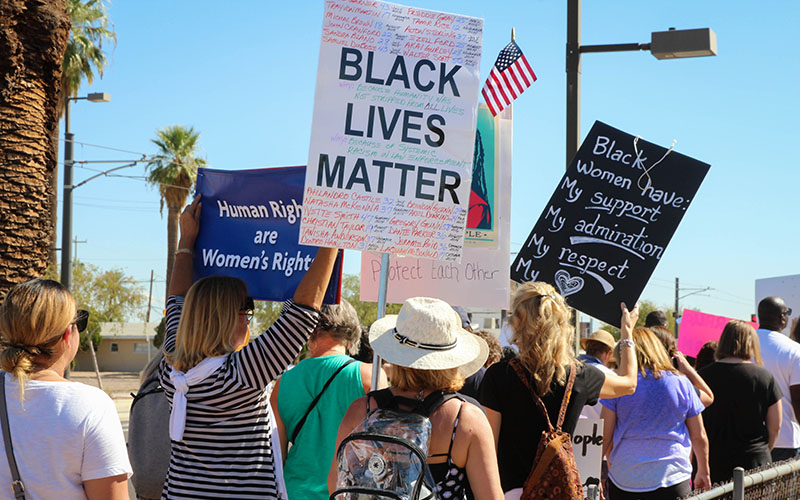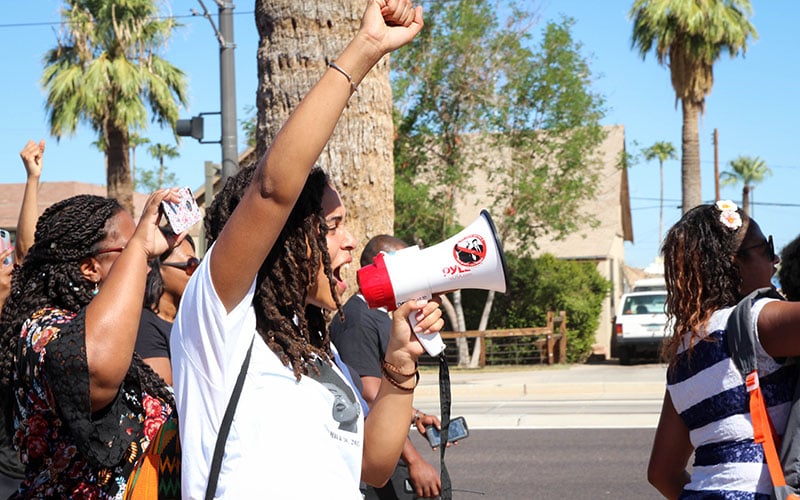PHOENIX – On an empty lot at the corner of 13th and Jefferson Streets, community members and leaders gathered Saturday for a march under the hot Valley sun. The theme was the empowerment of African-American women.
Phoenix was one of several cities that held similar demonstrations across the country that day.
Many of those who participated were, in fact, African-American women, who came out in numbers not seen since the Million Woman March 20 years ago.
Mothers with babies in strollers, young girls holding “Black Girls Rock” signs, and other attendees marched three blocks down to Eastlake Park, a historic landmark for the African-American community in the Valley, and assembled there for an afternoon of workshops, speakers and nonprofit organization exhibitions.
Organizers said they wanted to bring attention to social justice issues concerning black women and black transgender women. Issues ranging from reproductive rights, gender-based violence, and disparities in incarceration rates and education.
“When you look at a lot of the black organizing that’s been done around the nation, it’s been led by women, and yet women’s issues are never centered,” said Sarra Tekola, an Arizona State University doctoral student and one of the organizers of the event.
Tekola said they wanted to bring together a community she thinks has not been united enough.
“Phoenix is a very hostile environment for communities of color,” Tekola said. “Phoenix has the second highest rate of police murder, so it makes it really hard to build community. And as a result of that and other issues like racism, the black community is really fractured.”
The sun was hitting hard as noon was approaching. But that didn’t stop marchers from staying to hear the speakers. They listened to activists reciting poems. Community members shared their experiences of discrimination and ideas to overcome them. Community leaders introduced themselves and offered resources.
One of them was Rep. Geraldine Peten (D-Gila Bend).
Peten is the second African-American elected to the Arizona House of Representatives, and the first African-American woman in the last 10 years, after former Rep. Leah Landrum Taylor left for the Senate in 2007. Peten was appointed by the Maricopa County Board of Supervisors in August to replace former Rep. Jesus Rubalcava.
During her speech, Peten, who has a career in education, talked about the importance of education as opposed to incarcerating young people of color.
In an interview with Cronkite News, Peten said through education, she was able to get to where she is today.
“Whatever I do, I do for a purpose. That includes graduating from high school, from college, getting my masters, I have two masters,” Peten said. “All of that has been to strengthen my credentials so that I am qualified, cause unfortunately, for us to get our foot on the floor we have to be overqualified, usually.”
The African-American population in Arizona is 4.2 percent, but African-Americans represented only 1 percent of the state legislature in 2015. With Peten, that number increased to 2 percent.
Peten also said she hopes this march will bring women together.
“I hope that this isn’t just a moment, as they said, I hope this becomes a movement where women will start supporting each other,” she said.
Many of the attendees shared that hope and said they saw this event as the beginning of a stronger community.
Barbara Jackson was one of those listening to the speakers under the sun while the rest were participating in the workshops. She was sitting at the back holding a black umbrella and quietly payed attention to the speeches.
Jackson is a 74-year-old Tennessean who participated in protests during the civil rights movement in the 1960s.
She said she would’ve thought things were better for the African-American community by now, but she remains hopeful.
“I’m here for the support of a beginning of us unifying as people. Because if this keeps up, this is going to become larger than what it is now, this is just the beginning,” Jackson said.
“And once women get started on something, oh, you got a price to pay,” she added with a laugh.
